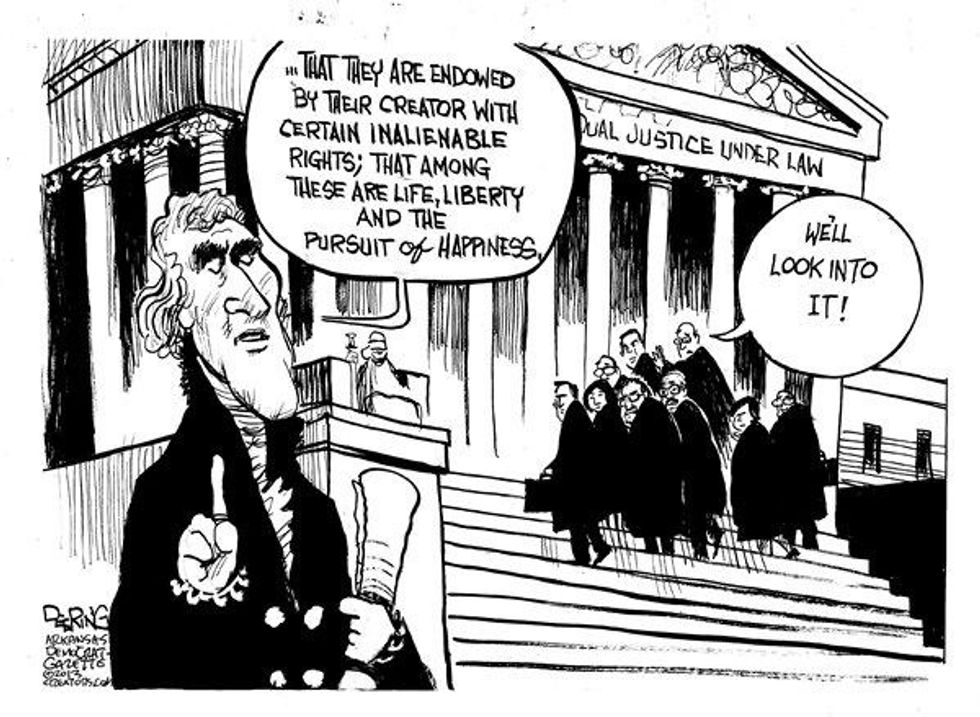"Political Cartoon: Gay Marriage and the Supreme Court" - Pinterest
With the battle to select a replacement for the late Supreme Court Justice Antonin Scalia intensifying more than ever, many might lament the supposed "politicization" of what could be called a relatively neutral institution. After all, isn’t the Supreme Court supposed to be a fair and objective arbiter of the nation’s laws and the Constitution? Shouldn’t a Supreme Court Justice be selected solely based on their legal acumen alone and not their political leanings?
The answer to both questions is, perhaps counter-intuitively, a resounding no. Despite all appearances, the Supreme Court’s function is inherently political. After all, in each case, the justices have the difficult task of considering each side’s merits and weaknesses and applying the principles of the Constitution as they see fit, a highly subjective process which involves a great deal of personal belief and preference. In each decision, they must weigh the political principles considered closely, be it the idea of freedom versus that of equality (think Brown v. Board), or freedom versus order (think Miranda v. Arizona), or even the original intent of the framers versus the preferences and beliefs of modern society. So, because the Supreme Court, and in fact, all of the federal courts of the judicial system, weigh these principles with the meaning of the Constitution, their function is inseparable from politics.
It’s easy to see why the appointment process itself is political; a justice must be nominated by the President and confirmed by the Senate, processes which of course involve a great deal of political maneuvering. But it’s more difficult to understand why most nominees tend to not only be appointed on basis of ideology, but even tend to have prior political experience (the best example being former President William Howard Taft’s nomination to the Court in 1921 as Chief Justice, a position which he held for nearly nine years). The answer is that generally, presidents want to be able to influence policy even after their administrations, or at least not have as much opposition to their policies from a Court which might ideologically oppose them. And so, they want to appoint justices who reflect their political beliefs, something more easily measured when looking at candidates with prior political experience. As you might imagine, it’s far easier to discern whether that senator from Utah is liberal or conservative as opposed to some (probably unknown) federal judge in the Sixth Circuit Court of Appeals - federal judges are known for issuing vague opinions and evading statements of political belief. As a result, even though it might seem like candidates for judicial positions should be selected on legal acumen alone, their political beliefs and experience almost always come into play.
Whether or not judicial nominations ought to be contentious battles of ideology and policy is a matter of political belief. But given the nature and function of the judicial system, it’s unfair to argue that the Supreme Court or its Justices be completely neutral interpreters of the Constitution.





















